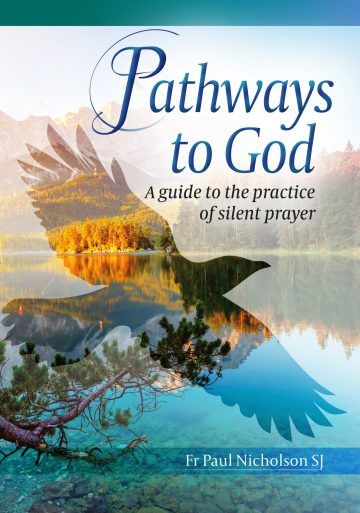One of the basic foundations of any life shaped by religious faith is the acknowledgement that every good thing that we enjoy is ultimately a gift. We did not create ourselves, bring ourselves into being; nor did we create everything around us that we rely on. We need other people to provide for us, and in the end we can only rely upon God to raise us from death. As soon as you begin to see the world in this light, it becomes clear that the only appropriate response is gratitude. Gratitude to God, in the first instance, and gratitude to the people around me. And so that gratitude becomes one of the pillars that is essential for the life of anyone who strives to be happy.
The joy of gratitude
In the Spiritual Exercises of St Ignatius Loyola, his programme for deepening a relationship with God, and coming to a greater clarity about what God’s call looks like in the life of any individual, Ignatius makes much of gratitude. It appears first as a response to the awareness of myself as created by God in order to love and serve him. As I come to know the reality of my own sinfulness more fully, gratitude is the response to God’s constant, faithful and loving forgiveness. In prayerfully pondering the life of Christ, I see with greater clarity the practical steps that I can take in order to walk alongside him, and find myself grateful to be so called. And after contemplatively accompanying Jesus through his death and resurrection, I am invited to go back out into the world with the expectation of meeting God in all things and all people, and so continuing the cycle of thanksgiving.
The happiness that is the fruit of this gratitude takes on a particular shape for Ignatius, one that he calls consolation. It is a kind of joy, although one that is not necessarily accompanied by party balloons and alleluias (though it may be!) Rather, it is rooted in an awareness of living the kind of life that God has created me for. This is not some kind of static blueprint, but an invitation to use all the creativity with which I have been blessed to consider what I have to do in the most loving, Christ-like way in any situation.
Consolation and happiness
Consolation can take a variety of different forms, not all of which are obviously connected with happiness, but one of them is the feeling of being in the right place at the right time, doing the right thing. You apply for a new job, maybe with some trepidation about making such a career move. Six months later, it is all working out really well. You find yourself as part of a good team, doing satisfying work, that stretches you but without undue stress. Here happiness and spiritual consolation are closely linked.
Perhaps, though, on another occasion, consolation takes on another shape. Through prayer you come to a deeper awareness of how you have hurt someone close to you. Perhaps you’d been trying to ignore this. Now, though, you find that you cannot ignore the issue any longer. As you see more clearly the harm that you’ve done, you feel bad. This is not an obvious happiness. But if the experience leads you to resolve to put things right, even if this can only be done at some cost to yourself, then it will be experienced as consolation. You are discovering yourself blessed with the power to become a more loving, Christ-like person. There is a happiness in that which can co-exist with the pain of knowing your own past failure, and the challenge of doing what you can to put it right.
The examined life
The Greek philosopher Plato recorded much of the thought of his own teacher, Socrates. One of the most famous sayings of Socrates that Plato remembered is that “the unexamined life is not worth living”. Of course it is possible to drift through life, merely reacting to whatever presents itself moment by moment. But Socrates believed that what separates human beings from animals is our capacity to reflect and consider, to learn from the past and plan for the future. Only in this way, he thought, could a truly human happiness be achieved.
This view fits well with the approach of St Ignatius that we have been considering. One of the main ways to grow in happiness is to take time to examine my life on a regular basis. If I come to a realisation of why I have been created – and the answer to the question posed in the old Penny Catechism, “Why did God make me?”, is a useful succinct summary here: “God made me to know him, to love him and to serve him in this world, and to be happy with him forever in the next” – then it makes sense to check out now and again whether I am in fact, in the different aspects of my life, loving and serving God.
Always be happy
Writing to the Christian community in Philippi, St Paul tells them, “I want you to be happy, always happy in the Lord; I repeat, what I want is your happiness.” (Ph 4:4). This can be read as no more than a pious platitude, rolling off the tongue as easily as saying “Happy New Year”, with no real thought. Surely it isn’t possible to be always happy? Now it is certainly true that any human life is likely to have a mixture of happiness and unhappiness, with perhaps long stretches that seem more neutral. But this idea of the examined life puts happiness into a more central place. It is both the result of living the life for which we are created – there is a deep-rooted happiness that comes from loving and serving God, even if this leads me into difficult situations – and a kind of indicator that I am on the right track.
For Ignatius, this consolation, and its attendant happiness, become the chief criterion of discernment. I can review my past choices, and notice which of them led me into greater consolation. I can look to possible futures, and the choices that will lead to them, and try to come to a sense of which will be more likely to point me in the same way. On this road to happiness, examining my life for this consolation becomes the compass – or perhaps the sat-nav? – that points me in the right direction. (Incidentally there is in this model a counter-experience, desolation, which is the experience of feeling cut off from God, and finding the promptings of God distasteful. Noticing this in myself, and tracing it to its source, also has a role to play in discernment.)
This blog is an extract from How to be Happy by Fr Paul Nicholson SJ.


